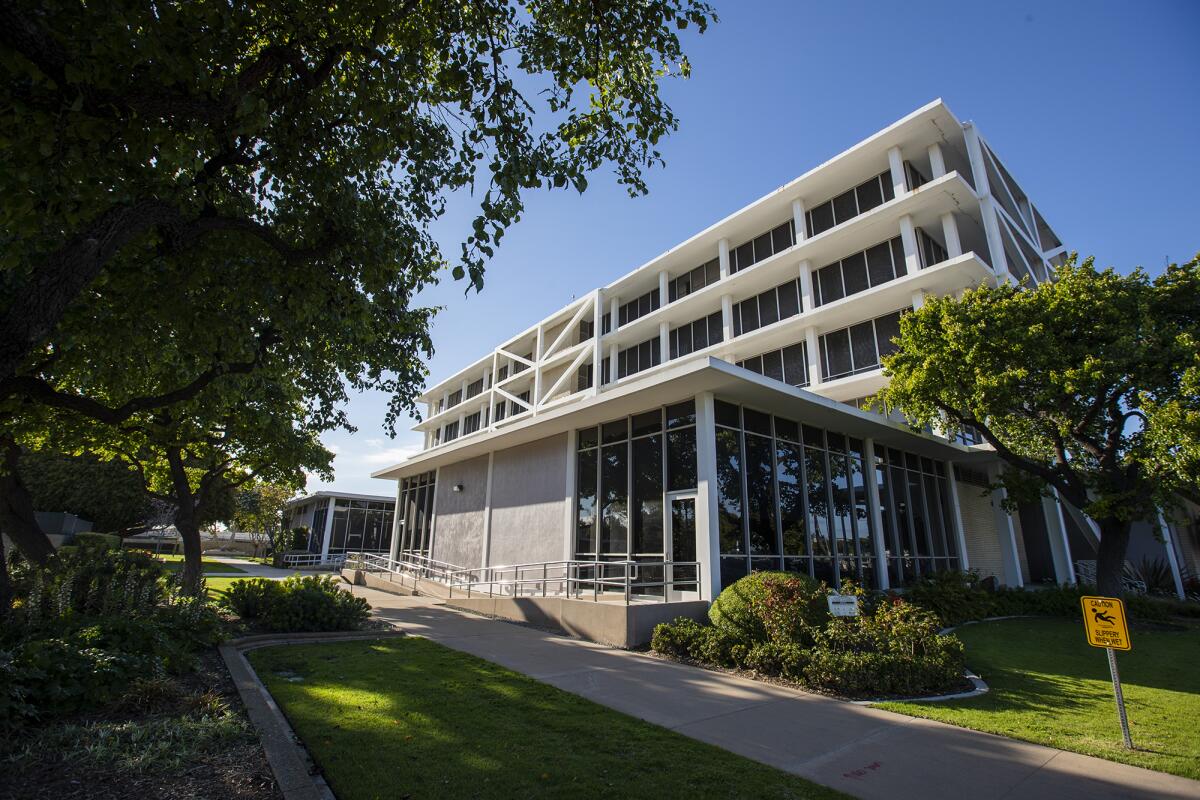Costa Mesa considers increasing city payroll $1.2M annually to oversee new cannabis retailers

- Share via
You have to spend money to make money. That seems to be the case in Costa Mesa, where officials are considering increasing staffing to handle retail cannabis businesses coming online under Measure Q, passed by voters in November.
The addition of a new industry sector is anticipated to generate more than $3 million annually through a 7% gross tax on retail cannabis sales and delivery. On Monday, members of the City Council were asked to discuss increasing the city’s payroll, to the tune of $1.2 million, to accommodate the transition.
City Manager Lori Ann Farrell Harrison called the proposal a “first glance” at the kind of resources that will be needed to process permits, enforce regulations and punish bad actors.
“[This] is basically what we think, at minimum, is necessary to start down this path,” she told the council in a study session Tuesday. “We’ll have to build some additional resources, training and bringing other resources to bear, for it to work really well.”
City Finance Director Carol Molina broke down the proposal into individual positions, by department. Two full-time code enforcement officers, at the cost of $265,612, will be required to identify cannabis retailers that aren’t permitted, perform site visits and issue citations.
A full-time assistant planner (a position pegged at $129,598 annually) would review facilities’ building permits and respond to requests for plan review, while three specialists would engage in a range of duties, from processing new and renewed business license to performing fire inspections and certifying cannabis businesses to ensure they open safely and in a timely manner.
Two police officers, at an estimated cost of 498,203 would handle calls for service, oversee regulation of the new businesses and potentially conduct criminal investigations related to new dispensaries. The officers would also assist with community policing and patrols.
The proposal amounts to an additional 7.5 full-time positions at an annual expense of $1,184,572. Molina said that figure is less than what other cities with similar laws have already committed to spending.
Santa Ana, for example, has added 10.5 full-time employees, including five police officers, while Long Beach has funded 8.5 full-time positions. Both cities have capped the number of allowable retail cannabis businesses at 30.
Mayor Pro Tem Andrea Marr asked how the Costa Mesa Police Department would recruit new officers, when current staffing levels are under what’s been budgeted for the department.
Chief Bryan Glass acknowledged the department is operating with a total of 132 staff members, just under the 136 staff members budgeted, with 117 actively working. Still, he said, new officers would be needed to handle a heavier workload associated with regulating dispensaries.
“There’s going to be a higher expectation, a higher demand than what we’re even doing at this point going forward,” he said. “We’re going to need a more direct, more aggressive approach where we’re going to have to have some of this (personnel) dedicated.”
Farrell Harrison acknowledged since Costa Mesa voters passed Measure X in 2016, which allows for cannabis distribution, testing and manufacturing in an industrial zone, nine businesses have been established.
Overseeing those, while addressing the 16 illegal dispensaries currently in operation, is a burden staff have undertaken without additional personnel. The proposed recommendations, she said, would help handle that and up to 20 new businesses.
“This is not just about the new businesses that are coming online,” Farrell Harrison said. “It’s about the current context and framework we’re operating in with Measure X [and] illegal dispensaries.”
Councilman Jeff Harlan suggested staff research grant funding the city might be able to secure to help with upfront and ongoing costs.
“This is a huge economic development opportunity for us, and by really being at the forefront here in the county, I think we may be well positioned,” he said before the session adjourned.
All the latest on Orange County from Orange County.
Get our free TimesOC newsletter.
You may occasionally receive promotional content from the Daily Pilot.




